Coronavirus: Playing party politics in a pandemic?
- Published
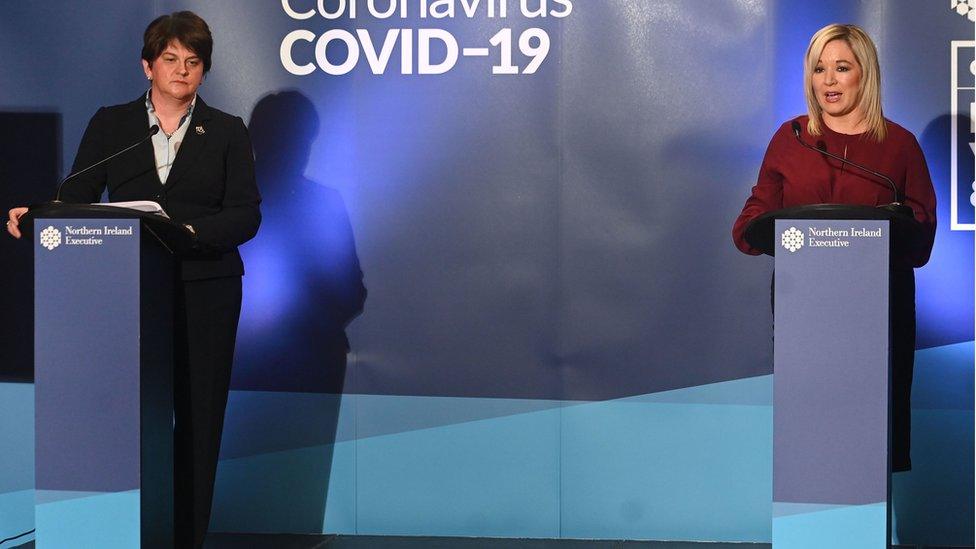
Arlene Foster and Michell O'Neill may have been standing side-by-side at press briefings, but their messages have been very different
"United front." "Unity of purpose." "Common ground."
Take your pick from the bank of phrases used by our politicians when they talk about the need to work together to tackle this deadly pandemic.
Two weeks ago when the executive's 10 ministers held a joint press conference in Stormont's grounds, it seemed like they might just be capable of doing it.
But that didn't last long.
Sinn Féin has been pulling in the opposite direction from its power-sharing partner, the DUP, on many aspects of the response to this crisis.
The first and deputy first ministers, Arlene Foster and Michelle O'Neill, may have been standing side-by-side at regular press conferences, but their messages - on everything from school closures and testing to what counts as an essential business - have been entirely contradictory and confusing.
Flawed strategy?
Ms O'Neill's latest comments, accusing Health Minister Robin Swann of being too slow to act, are significant because she is swiping at her very own government.
In the space of one interview, the concept of collective responsibility practically vanished.
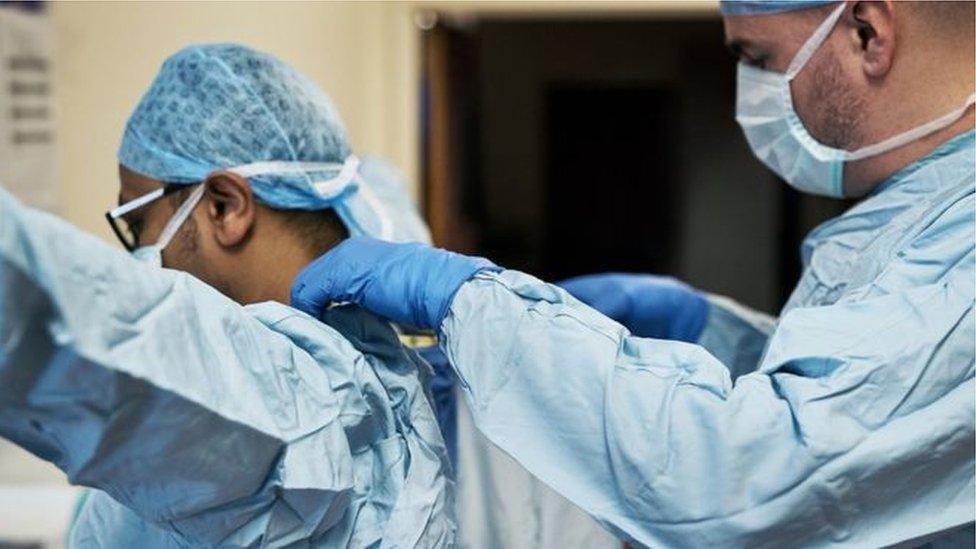
The speed of provision of protective equipment to healthcare workers has been a cause of major concern
Critics say she's acting more like an opposition leader playing politics, than the joint head of an administration speaking up on principle.
But Sinn Féin says there is no point presenting a united front on a flawed strategy, and that if the party tried to resolve differences behind the scenes - rather than airing legitimate concerns with strategy in public - it would get slated for that.
Ms O'Neill says she'll continue to "call out" problems within government, and that argument will hold weight with some, but it will further upset relations with the other four parties, in an already tense executive.
Arlene Foster tried to put out the flames, sounding a calm note when she appeared on Friday's airwaves, although some within the DUP may have wanted her to take a tougher line.
Fragile relationships
For days now, Stormont sources have been briefing journalists that all is not well on the hill, as ministers and their respective teams go on the defensive.
Around the executive table, the atmosphere's been repeatedly described as "toxic", with decisions being taken in silos and even some policy announcements being put on social media before governmental colleagues have been informed.
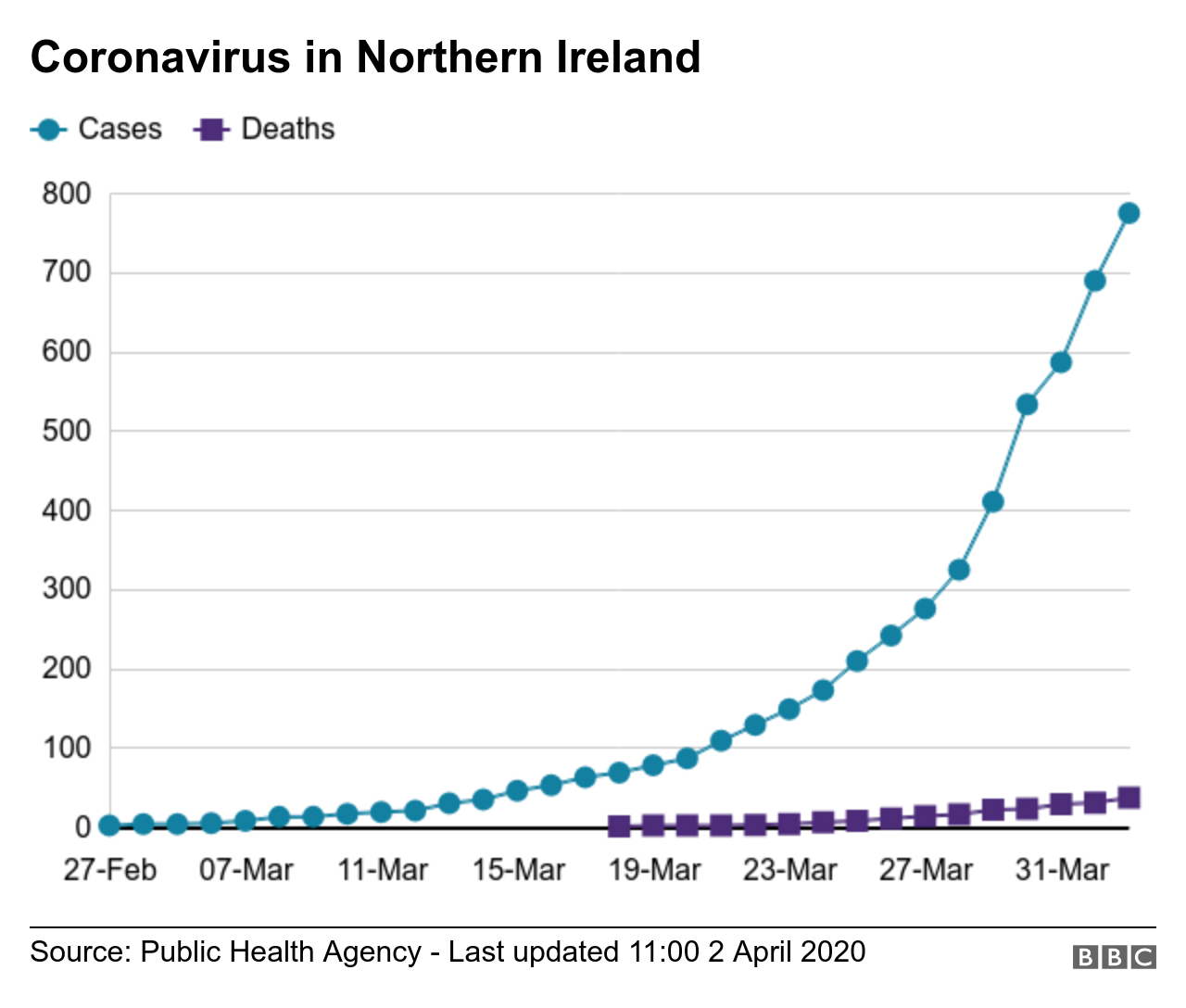
It's true the parties are facing challenges they never envisaged, made harder by the fact devolution was only restored in January after a three-year hiatus - relationships were already fragile.
The crisis has also highlighted the shortcomings in the limited powers afforded to the Stormont executive.
Whether it's relying on Westminster for extra funding, or looking to Dublin for help in securing additional equipment, given the bidding war going on across the world, Northern Ireland only has so many levers to pull and no doubt that is also exacerbating internal strains.
Failure is not an option as lives are depending on the executive and time is short. The peak of the virus is due to arrive in Northern Ireland during the next two weeks.
Over the years the clarion call here has been for politics to be taken out of health. But if the parties couldn't do that in the past how can anyone expect them to take the politics out of a pandemic?
The DUP-Sinn Féin partnership has always been one of reluctant necessity, due to Northern Ireland's system of mandatory power sharing.
It's hard to present a united front if someone doesn't fully believe in it. Will the executive soon reach a point where the differences in approach to tackling this virus become too much to bear?
For the sake of everyone in Northern Ireland, let's hope not.

A SIMPLE GUIDE: How do I protect myself?
AVOIDING CONTACT: The rules on self-isolation and exercise
LOOK-UP TOOL: Check cases in your area
MAPS AND CHARTS: Visual guide to the outbreak

- Published3 April 2020
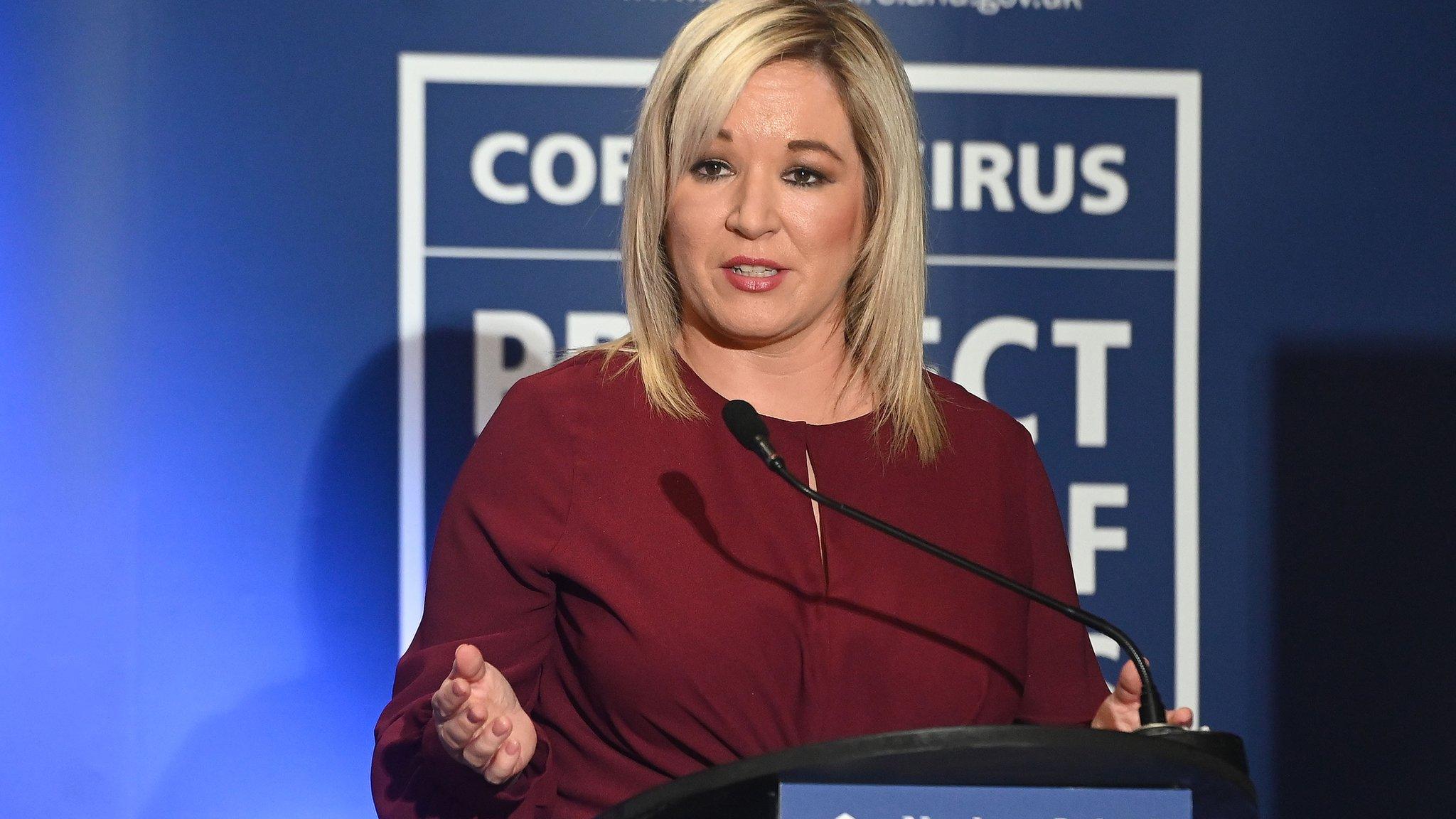
- Published31 March 2020
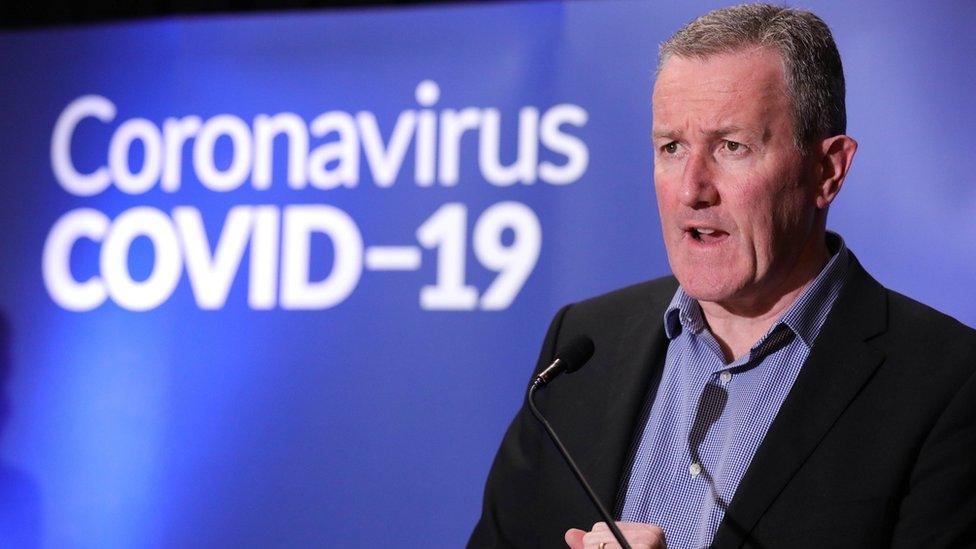
- Published19 March 2020
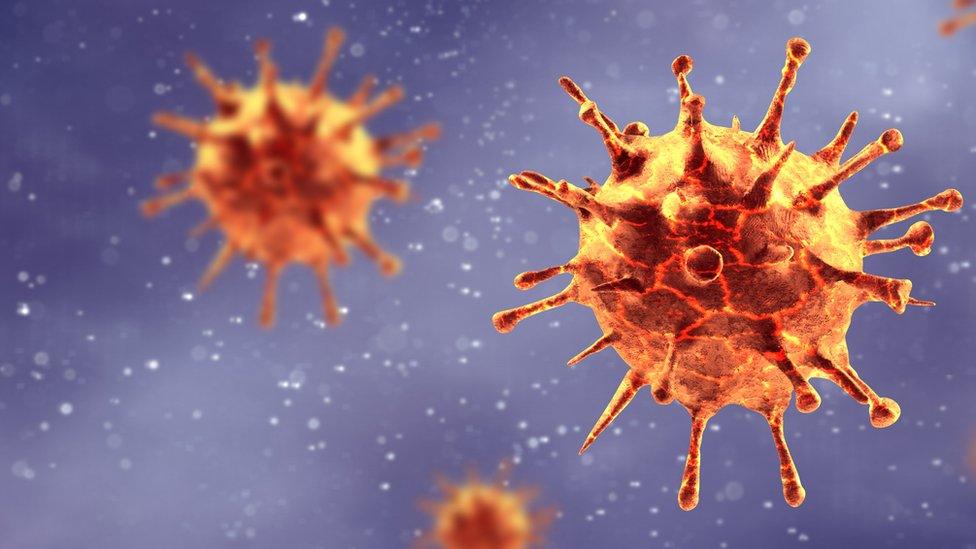
- Published12 March 2020
